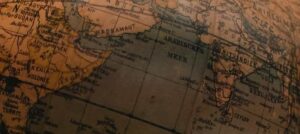Home » Geography
Study Geography Abroad!
- Duration: 3 - 4 Years
- Average fees: RM 10,000 to 50,000
- Average Salary: RM 3,000 to 9,000
- Job Demand: Low - Med
Introduction to Geography
In a Geography course, you will study the world and the way humans interact with it. It is mainly about social science, however you will also learn and gain insights about politics and sociology.
There are two main concepts you will learn about Geography.
First is the concept of physical geography, which includes the weather, climate, volcanos, atmosphere, landscapes, earthquakes and anything to do in the earth’s natural element. The second concept is human geography, which focuses on how humans interact with each other such as globalization, tourism, population and economics.
Why study Geography?
If you are someone who cares about the climate and wants to find a solution to overpopulation, this course will equip to have a better understanding of the fundamentals and concepts of geography. Your knowledge will expand about the complex issues the world faces as the population continues to expand.
Fields of Geography
There are two main fields of Geography: human geography and physical geography. There are also other sub-branches of geography that are closely linked to each other.
Human geography studies the human race through understanding a population’s background, how the interactions affect the people and how they act as a community. Some sectors in human geography are cultural geography, rural geography, political geography, social geography, and more.
Physical geography studies the natural characteristics of the Earth. It is also used to see what lies beneath the ice caps and huge oceans. Some disciplines of physical geography are climatology, hydrology, biogeography, and geomorphology.
Environmental geography is also known as human-environment geography. This field utilizes technology to observe the impact of humans leave on the environment around them. For example, drones are used to detect dried-up lakes around rainwater forests, so that conservation efforts can be focused there.
Regional geography focuses on the cultural and political landscape of a specific location and how it interacts within the region. A few examples of regional geography is by country, district, and neighbourhood.
Cartography involves the mapping of data on maps. The mapping procedure is usually done technologically, so a good cartographer must have essential knowledge of the data before displaying it on the map.
Geomatics focuses on using technology to collect, distribute, store, analyze and present data in regards to geographic information.
What will you be studying?
- Environmental Change: Past & Present
- Health, Space and Justice
- Geographic Information Systems (GIS)
- Wilderness and Habitats
- Natural Resource Management
- Economic Geography
- Sustainable Development: Nature and City
- Globalisation and Regional Development
What are the job opportunities?
These are the prospective jobs you can do with a Geography degree:
- Cartographer
- Environmental Consultant
- Town Planner
- Planning & Development Surveyor
- Tourism Officer
- Nature Conservation Officer
- Residential/Commercial Surveyor
Additionally, the interdisciplinary skills you’ll be learning can also set you up for a career in the following:
- Accounting and Finance
- Logistics and Distribution
- Landscape Architecture
- IT and Computing
- Government and NGOs
- Teaching
- Business and Management
Are you interested to study this subject in Malaysia?
Please fill up the form and our conselors will get back to you shortly.
Universities to attend:
Courses to take:

Study Abroad Perks & How To Guarantee Your Spot
Study Abroad Perks & How To Guarantee Your Own Spot Your study overseas is worth every penny. Image source: Pexels When you study abroad, you experience better personal growth. Sure, studying abroad and navigating the
What's new

5 Easy and Affordable Recipes for Students Away from Home! – Eduloco Recipes
Looking for some easy and wallet-friendly recipes? You’re in the right place! At Eduloco, we understand the student life hustle, and that’s why we’ve curated






